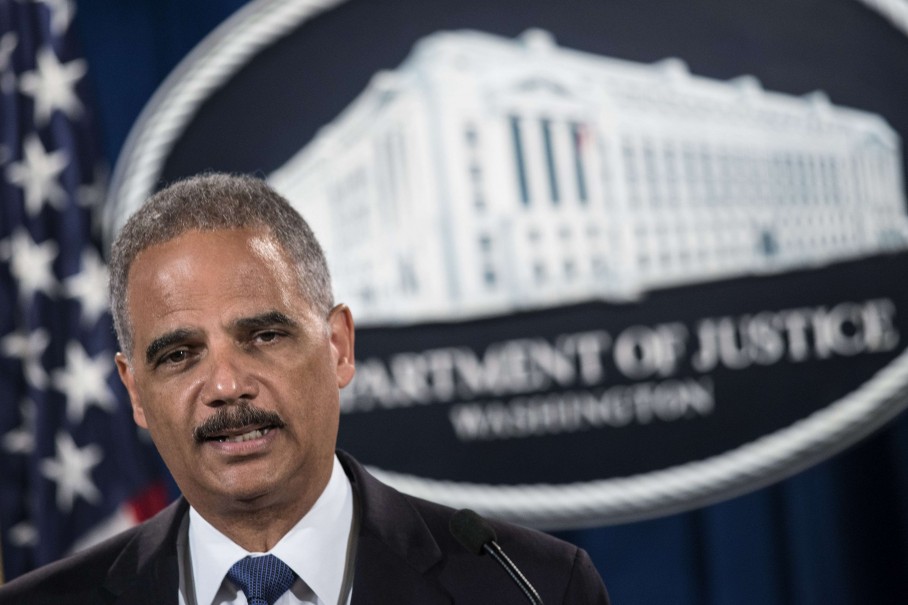
Five facts about DOJís civil rights investigations under Eric Holder
Josh Hicks
Attorney General Eric H. Holder on Thursday formally announced that the Justice Department will investigate the Ferguson, Mo. police department for civil rights violations.
The probe, first revealed in a Washington Post article on Wednesday, will examine whether officers have systematically engaged in racial profiling or a pattern of excessive force.
The Justice Department will also review the St. Louis County Police Department’s handling of mass demonstrations after a white Ferguson police officer fatally shot an unarmed African American man, 18-year-old Michael Ferguson.
Below are five key facts about the Justice Department’s civil rights investigations under Holder, who has served as attorney general since the start of the Obama administration.

Attorney General Eric Holder speaks during a press conference at the Department of Justice on Sept. 4. (Brendan Smialowski/AFP/Getty Images)
1.) DOJ has increased its civil rights investigations
The Holder Justice Department has opened more than 20 civil rights investigations into local police departments in the past five years, doubling the number of reviews that the agency opened during the previous five years.
2.) Some police departments enter voluntary agreements
Police departments can resolve civil rights investigations by entering into voluntary agreements to take remedial actions, such as providing additional training to officers and working to implement best practices.
The Las Vegas Metropolitan Police Department was the first law-enforcement agency to participate in what the Justice Department calls a “collaborative reform process.” The program, which started in 2011, is led by former Oakland and East Palo Alto police chief Ronald Davis, who established a reputation as a reformer in both cities.
At least 14 police departments have voluntarily agreed to take remedial actions. Those agencies include the New Orleans Police Department, which was found to have engaged in a patter of excessive force and other problems, and the Puerto Rico Police Department, which was found to have used unreasonable force against demonstrators.
3.) Four police departments are fighting DOJ
Holder’s Justice Department has filed lawsuits against four local law-enforcement agencies that have resisted DOJ demands. The jurisdictions include Alamance, N.C.; Colorado City, Ariz.; Maricopa, Ariz.; and Meridian, Ala.
The most high-profile dispute involves a lawsuit to obtain documents that could help federal investigators determine whether Maricopa County Sheriff Joe Arpaio’s aggressive tactics against illegal immigrants represent civil rights violations.
It is unclear how the Ferguson police department will respond to the Justice Department’s new probe of that agency. The St. Louis County police department, which trains Ferguson officers and Missouri state troopers, voluntarily agreed to a review.
4.) Eight civil rights investigations are still open
The Justice Department says it has issued findings or guidance letters for most of these cases, which involve police departments in Albuquerque, N.M.; Cleveland; Los Angeles County, Calif.; Miami; and Newark, N.J. The Ferguson case falls into this category as well.
5.) DOJ does not always find constitutional violations
The Justice Department says it has concluded five civil rights investigations without finding constitutional violations. Those cases involved police departments in Austin, Texas; Escambia County, Fla.; Harvey, Ill.; Lorain, Ohio; and Schenectady, N.Y.
